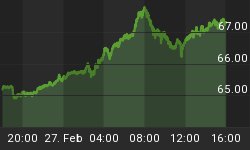Military coups are rarely altruistic and the available data around this February Myanmar military coup confirms that rather loudly. This is business, more than anything.
Findings by the United Nations and other international watchdog groups now clearly show the economic influence--on a day-to-day basis--that the junta had on its citizens, long before the coup that overthrew elected leader Aung San Suu Kyi and members of her National League for Democracy (NLD).
Following a general election, which Suu Kyi's NLD party won by a landslide, the military has declared a year-long state of emergency, considering that they were backing the opposition.
Dozens of NLD officials were arrested including Suu Kyi, who was charged for violating the country's Natural Disaster Law and the country's official secrets act, as well as possessing illegal walkie-talkies…
In late March, the US Treasury renewed sanctions against Myanmar Economic Holdings Public Company Limited (MEHL) and Myanmar Economic Corporation Limited (MEC) in response to the junta’s takeover.
According to the US, through two conglomerates, the Myanmar military controls vast portions of the country’s economy, from banking and mining to manufacturing, alcohol, cigarettes, and other consumer goods.
In mid-April, the European Union also sanctioned the MEHL, the MEC and 10 individuals involved in the coup, since which more than 600 people have been killed by security forces.
The coup, in effect, was launched to enable lucrative ownership structures for the military, through those two conglomerates established in the 1990s when the government began privatizing state industries.
And the military's level of business influence has only started to become clearer in recent years, when agencies started digging around more in light of the military’s crackdown on Rohingya communities.
It’s a vicious circle of business and violence. Myanmar’s military leaders control at least 110 businesses at the heart of the economy and use these proceeds to ensure no resistance.
A UN report from September 2019 concluded that business revenues enhanced the military's ability to carry out human rights abuses with impunity.
Also, in January 2020, a leaked document by activist groups Justice for Burma and Amnesty International, showed that the conglomerates are run by the military's top brass, including several leaders of the ongoing coup. Around a third of all shareholders are military units, while the rest are owned by former and current military personnel.
Between 1990 and 2011, according to the report, MEHL paid its shareholders $16.6 billion in dividends.
Following the new sanctions, some foreign investors started to withdraw from ventures with the two conglomerates; however, this is not likely to have a significant impact since much of the business is domestic and the market for these products will not disappear.
They also have continued support from China and Russia, both of which have blocked the UN from condemning the military coup.
Meanwhile, in Myanmar local protesters are boycotting companies with ties to the new government - including jewelry shops and cigarette brands.
Under the "Stop Buying Junta Business" campaign, the protesters fighting the coup are encouraging consumers to stop buying cigarettes, beer and everything else produced by the military’s businesses. So far, it’s a losing battle when the military controls nearly everything.
By Charles Benavidez
















